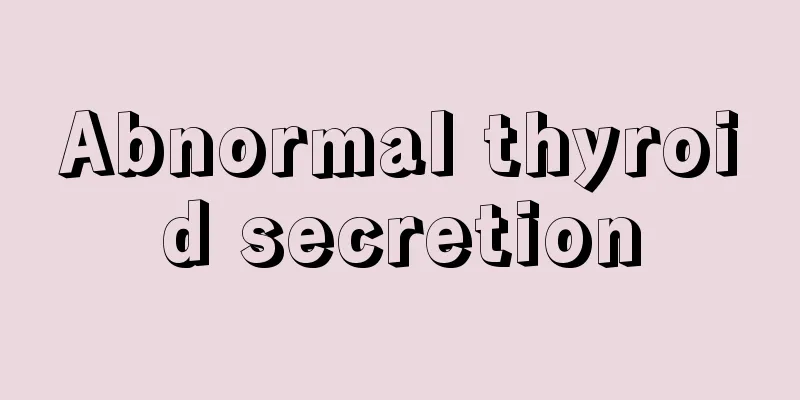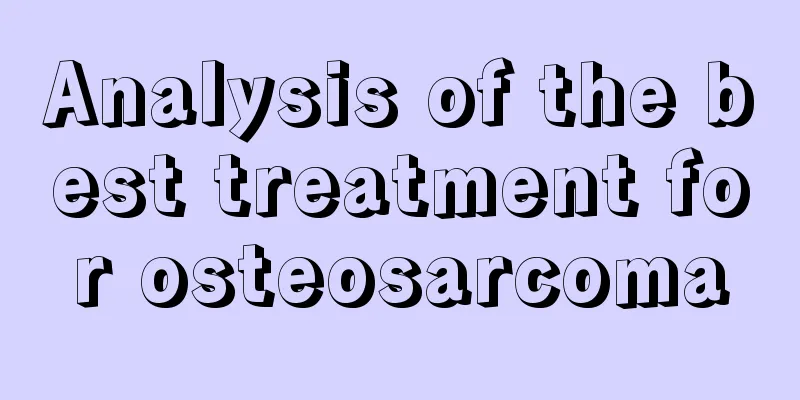Abnormal thyroid secretion

|
The thyroid gland is an important organ of the human endocrine system. If there is any abnormality in it, it will directly affect the health of the human body. The most common one is what we often call goiter, that is, hyperthyroidism, which is a disease caused by abnormal thyroid secretion. Therefore, if you want to stay healthy, it is recommended that you have a comprehensive understanding of thyroid secretion, so that you can clearly know whether there is any abnormality in thyroid secretion and detect the disease in time. The thyroid gland is obviously different from other systems of the human body (such as the respiratory system), but it is closely connected with the nervous system, interacting and coordinating with each other. They are called the two major biological information systems. Without their close coordination, the body's internal environment cannot maintain relative stability. The thyroid gland is the largest endocrine gland in the human endocrine system. After being stimulated by nerves, it secretes thyroid hormones, which act on the corresponding organs of the human body to exert physiological effects. Thyroxine, also known as tetraiodothyronine (T4) and triiodothyronine (T3), are both biologically active thyroid hormones. In addition, trace amounts of biologically inactive trans-triiodothyronine are secreted, both of which are iodine-containing tyrosine derivatives. Excessive secretion of thyroid hormone is called hyperthyroidism, while too little is called hypothyroidism. Both can cause goiter. However, goiter is not necessarily caused by hyperthyroidism or hypothyroidism. It can also be caused by iodine deficiency or increased iodine requirements during puberty and insufficient intake. You can go to the hospital for a thyroid function test to confirm the diagnosis. Hyperthyroidism commonly referred to generally refers to hyperthyroidism associated with Graves' disease, which is an autoimmune disease. Thyroid-stimulating autoantibodies (including TSAb and TBAb) act on thyroid TSH receptors, producing the same biological effects as TSH, causing increased synthesis and secretion of T3 and T4 and enlargement of the thyroid gland. This article has analyzed the diseases caused by abnormal thyroid secretion. Regardless of whether you have too much or too little thyroid secretion, it is recommended that you actively seek medical treatment. Only in this way can you get rid of the trouble of abnormal thyroid secretion as soon as possible and ensure the health of your endocrine system. I hope all friends can understand this. |
<<: Causes of catalyst poisoning
>>: The harm of scar tissue hyperplasia
Recommend
The symptoms of late-stage bone cancer are mainly manifested in the following aspects
The symptoms of bone cancer can be divided into e...
What are the stages of renal tumor metastasis?
Kidney tumor is a very common malignant tumor, al...
Can oranges really help sober you up
Today's living standards are constantly impro...
There are so many harmful effects of long-term lack of sleep
Long-term lack of sleep is a common problem for m...
Will you get fat if you eat breakfast and then go to bed?
As more and more people are getting fat, many peo...
Coughing and breathing with sound
Coughing is a very common phenomenon in life, and...
How long can one live with thyroid cancer lymph node metastasis? What affects the survival period of thyroid cancer lymph node metastasis?
There are many people suffering from thyroid canc...
Immune thrombocytopenic purpura
When it comes to the disease of immune thrombocyt...
What are the symptoms of prostate cancer in the elderly
For men, the older they get, the more susceptible...
What is the difference between cerebral hemorrhage and cerebral infarction?
We often hear that someone has suffered a cerebra...
The correct way to put your tongue against the palate
Although pressing the tongue against the upper pa...
What is the correct way to use facial mud?
There are various kinds of facial masks on the ma...
Can ordinary brain CT scan detect brain cancer?
Intracranial malignant tumors include gliomas, ma...
What is Reiter's syndrome
Reiter's syndrome. Many people may not know w...
Obese people should be careful about prostate cancer
Among prostate diseases, prostate cancer is the m...









